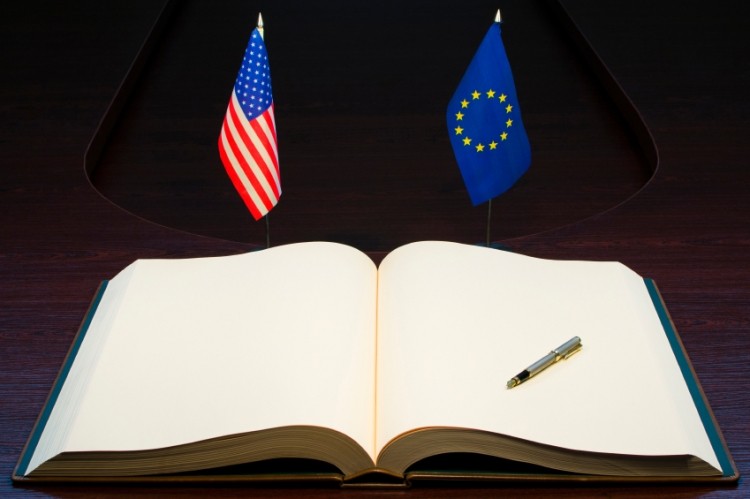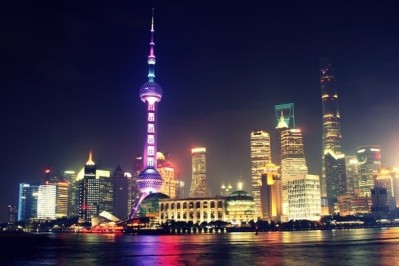EU addresses WTO with concern over China’s cosmetics regulations

Backed by Canada and the United States, EU representatives explained they were looking to ensure that China trades fairly, respects intellectual property rights and meets its' WTO obligations.
Behind the US, China is Europe's second-largest trading partner and the continent is China's biggest trading partner, making over €1 billion a day in their venture.
However, the continents have not been seeing eye to eye lately on numerous trade issues...
China also expressed concerns
A total of 47 new trade concerns were raised at the World Trade Organisation’s technical standards committee so far this year, an all-time high in the WTO’s history.
Of those concerns, China was the target of three cases.
Combined with 38 old concerns, the Technical Barriers to Trade (TBT) Committee reported 85 issues raised so far in 2014 and closing in on the record of 88 such cases in 2012.
Of the total, China is involved in seven cases or almost 8%.
In the committee meeting last week, China also raised three new trade concerns over technical standards used by the European Union, over safety and technical standards on toys, household electrical appliances and IT security certification.
The TBT Committee is forum for discussion of technical regulations and standards maintained by WTO members. Concerns raised at it are generally informal and practical, and are resolved in the discussion. They do not immediately result in legal actions or formal settlement reporting procedure.
Efforts to align cosmetic standards high on EU agenda
In the recent 'Transatlantic Trade and Investment Partnership' talks, Europe and the US launched negotiations on the financial regulation and markets-related activity, since the EU and US account for 80% of global financial transactions.
At the heart of the European regulation system is the "Precautionary Principle," which is enshrined in the EU treaty and gives its' regulators more license than their counterparts in the U.S. to restrict or ban substances that are believed to be harmful.
In essence, the EU system says that some chemicals are so hazardous that they shouldn't be used at all, while the U.S. system in many cases would keep them on the market, so long as they aren't used in ways that would harm people.
Both sides are hoping that these talks will help to align their domestic standards in this instance, and that they will be able to set the benchmark for developing global rules – beneficial for both EU and US exporters, as well as for the multilateral trading system.






![Able C&C has furthered its partnership with Japanese discount chain Daiso with new makeup launch. [A'pieu]](/var/wrbm_gb_food_pharma/storage/images/_aliases/wrbm_tiny/publications/cosmetics/cosmeticsdesign-asia.com/headlines/brand-innovation/a-pieu-and-daiso-launch-exclusive-2-makeup-line/17339117-1-eng-GB/A-pieu-and-Daiso-launch-exclusive-2-makeup-line.jpg)
![Down Under Enterprises is setting sights on the Asian market as environmental sustainability and traceability become increasingly important. [Getty Images]](/var/wrbm_gb_food_pharma/storage/images/_aliases/wrbm_tiny/publications/cosmetics/cosmeticsdesign-asia.com/headlines/market-trends/down-under-enterprises-shifts-focus-to-china-as-environmental-sustainability-traceability-come-into-the-spotlight/17304932-1-eng-GB/Down-Under-Enterprises-shifts-focus-to-China-as-environmental-sustainability-traceability-come-into-the-spotlight.jpg)
![News updates from Shiseido, Dr.Ci:Labo, Sephora, and more. [Shiseido]](/var/wrbm_gb_food_pharma/storage/images/_aliases/wrbm_tiny/publications/cosmetics/cosmeticsdesign-asia.com/headlines/brand-innovation/updates-from-shiseido-dr.ci-labo-sephora-and-more/17334944-1-eng-GB/Updates-from-Shiseido-Dr.Ci-Labo-Sephora-and-more.jpg)

![Clariant has underscored the importance of localisation strategies and distribution capabilities in China with beauty trends evolving at a rapid pace. [Getty Images]](/var/wrbm_gb_food_pharma/storage/images/_aliases/wrbm_tiny/publications/cosmetics/cosmeticsdesign-asia.com/article/2024/04/16/clariant-emphasises-importance-of-localisation-in-the-era-of-viral-trends/17327969-1-eng-GB/Clariant-emphasises-importance-of-localisation-in-the-era-of-viral-trends.jpg)

![We dive into our most-read stories on formulation and science. [Getty Images]](/var/wrbm_gb_food_pharma/storage/images/_aliases/wrbm_tiny/publications/cosmetics/cosmeticsdesign-asia.com/headlines/formulation-science/skin-science-latest-stories-on-cosmetics-science-and-formulation/17334719-1-eng-GB/Skin-science-Latest-stories-on-cosmetics-science-and-formulation.jpg)